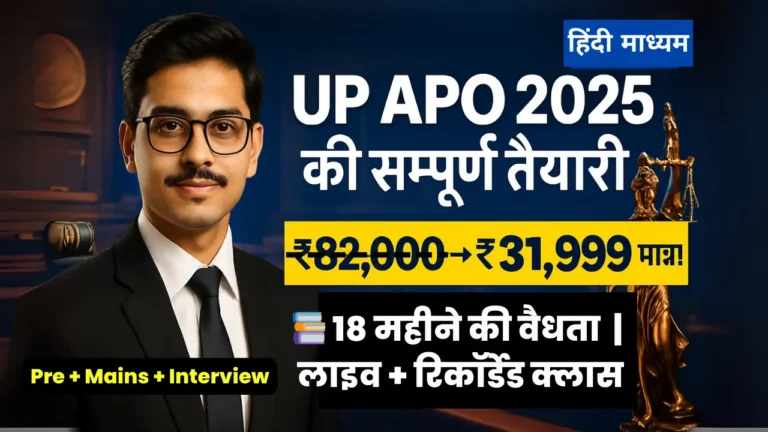The rising menace of digital arrest scams in India has left citizens terrified and confused. This blog explains the law against digital arrest scams, the relevant legal provisions (Bharatiya Nyaya Sanhita, 2023 (“BNS 2023”), the Bharatiya Nagarik Suraksha Sanhita, 2023 (“BNSS 2023”) and the Information Technology Act, 2000), and what victims can do to seek justice.
Table of Contents
Introduction
You pick up your phone and there’s a call: “Sir/Madam, this is the Crime Branch. Your Aadhaar and PAN are linked to a money-laundering case. You are under digital arrest.” On the screen, you see a person in uniform, an official ID card, even maybe a video call from what appears to be a police station. The panic sets in. The fraudster insists you transfer money, share OTPs, or remain on a video call—“You are under arrest, don’t hang up.”
What you’re experiencing is a digital arrest scam—a new breed of cyber-fraud that blends impersonation, technology and intimidation. The shock: there’s no such thing as a “digital arrest” under Indian law. This blog walks you step by step through how these scams work, the correct legal offences that apply, and how you can protect yourself.
What is a Digital Arrest Scam?
A “digital arrest scam” is not a lawful process. Instead, fraudsters impersonate law-enforcement or government officials using calls, video calls, spoofed numbers or fake documents. They create urgency and fear—accusing the victim of serious crimes like terror links, money laundering or drug trafficking—then force immediate compliance: transfer money, share bank details, stay on video call, or hand over device control.
Recent alerts from the National Payments Corporation of India (NPCI) and the Indian Cyber Crime Coordination Centre (I4C) warn of growing volumes of such scams. zeebiz.com+2Press Information Bureau+2
Key features:
- Impersonation of police, CBI/ED, customs etc.
- Spoofed numbers or video calls.
- Threat of arrest or asset seizure if victim does not comply.
- Demand for UPI/bank transfer, OTP, or device access.
- Isolation: victim keeps camera on, told not to speak with family.
Read More: Crypto Is Legal Property in India | Madras HC Explained 2025
Why Are These Scams So Effective?
Because they exploit human psychology and digital vulnerability:
- Authority bias — victim believes official uniform and ID.
- Fear & urgency — “you will be arrested/have an FIR”.
- Digital isolation — video call on, no outside communication allowed.
- Technology gives appearance of legitimacy — background, ID, remote screens.
- Low awareness among many, especially older or less tech-savvy people.
Legal Framework: What Offences Apply?
Here are the correct legal provisions you must know—accurate as per current law.
1. Impersonation of a Public Servant
- BNS Section 204: “Personating a public servant” — Whoever pretends to hold any particular office as a public servant knowing he does not hold such office, or falsely personates any other person holding such office, and in such assumed character acts or attempts to act under the colour of that office. Punishment: imprisonment for not less than six months but which may extend to three years, and fine. Vakilsearch+2A Lawyers Reference+2
- This directly covers a fraudster pretending to be police or government official in a digital arrest scam.
2. Cheating and Personation
- BNS Section 318: “Cheating” in general (offences against property).
- BNS Section 319: “Cheating by personation” — pretending to be someone else to cheat. (These sections correspond to IPC equivalents). Uttar Pradesh Police+1
- These apply when false identity is used to extract money from the victim under false pretence.
Read More: Criminal Conspiracy under BNS 2023 – Definition, Ingredients & Punishment
3. Forgery & Using Forged Documents
- BNS Section 336: Forgery of valuable security or electronic record.
- BNS Section 340: Using or possessing forged documents or records. A Lawyers Reference+1
- Fraudsters often present fake FIRs, court orders, or uniforms—these provisions apply.
4. Criminal Intimidation / Extortion
- BNS Section 351: “Criminal intimidation” — threatening a person with injury to his person, reputation or property, or to the person of anyone in whom that person is interested.
- BNS Section 308: “Extortion” — intentionally putting a person in fear of injury to deliver property or valuable security. Wikipedia
- In digital arrest scams, victims are threatened with arrest or asset freeze to make them comply.
5. Cyber-Offences under IT Act
- IT Act 2000 – Section 66C: Identity theft — fraudulently or dishonestly use of another’s electronic signature, password or unique identification.
(Official text: IndiaCode §66C) - IT Act 2000 – Section 66D: Cheating by personation by using computer resource — punishment: imprisonment up to three years and fine up to one lakh rupees. (Official text: IndiaCode §66D)
- These provisions cover the digital/e-communication aspect of the scam—calls, video, remote access, spoofing.
Implications for “Digital Arrest” Scenario
Putting it all together, when a fraudster:
- calls you, posing as police or govt official,
- threatens you with arrest unless you pay,
- uses a fake ID, video background, remote access, and demands money or device access,
then you potentially have multiple offences: BNS §204 (impersonation), §§318/319 (cheating), §§336/340 (forgery), §308/351 (extortion/intimidation), IT Act §66C/66D (cyber impersonation/cheating).
And crucially—there is no lawful “digital arrest” procedure. Any threat of such online is part of the fraud.
Legal Issues and Challenges of Social Media in India
What Can Victims Do Immediately?
✅ Stay calm, do not comply immediately
- Hang up if you receive a threatening call claiming you’re under arrest.
- Do not share OTPs, bank credentials, remote-access codes, live video feed.
✅ Verify independently
- Call your local police station, cybercrime cell or use government helpline e.g. 1930 (cyber crime helpline) to verify.
- Do not trust caller IDs which can be spoofed.
✅ Preserve evidence
- Screenshot call logs, video call ID, any UPI or bank account asked for.
- Record date/time, phone number, device used.
- Preserve any remote access prompt, screen shares.
✅ Report online and file FIR
- Use https://cybercrime.gov.in to lodge a cyber complaint.
- File an FIR at your local police station: mention offences under BNS §204, §§318/319, §§336/340, §308/351 and IT Act §66C/66D.
- Request your bank to freeze or recall transfers if possible.
✅ Aid investigation
- Provide full details to police or cyber-cell: bank/UPI accounts, device logs, SIM/number details.
- Cooperate, but ensure you preserve your rights and use legal counsel.
Preventive Measures & Public Awareness
- The government and telecom service providers have introduced systems to block incoming international spoofed calls displaying Indian numbers. Press Information Bureau+1
- Banks and public sector bodies (for example the State Bank of India) regularly publish awareness about digital arrest scams. State Bank of India
- Always verify official communication through government websites (@gov.in) or verified numbers, not what appears on your screen.
- Families, especially elderly members, must be educated that real law-enforcement will never threaten instant arrest and ask for immediate money transfers via UPI/UPI pins.
Challenges & Key Issues
- These scams often originate internationally or with complex tech tools (deepfakes, spoofing) so tracing is hard.
- Victims often delay reporting out of shame or fear, giving fraudsters more time to move money.
- There may be jurisdictional issues if servers or accounts are abroad, complicating investigation.
- The law is strong, but public awareness is still low—scammers exploit this gap.
Conclusion
Digital arrest scams aren’t novelty—they are pure fraud. No one in India can arrest you via WhatsApp or Zoom. If someone threatens you with “you are under digital arrest,” they’re breaking the law: impersonation (BNS §204), cheating (BNS §318/319), extortion (BNS §308/351) and cyber-crime (IT Act §66C/66D).
Knowledge is your first shield; timely action is your second. By recognising the scam, preserving evidence and reporting promptly, you reclaim power from the fraudsters. And remember: the law is on your side.
Stay alert, verify independently, don’t react in panic—and help spread awareness so fewer fall victim to these virtual threats.
Key References
- BNS Section 204 – Personating a public servant. A Lawyers Reference
- IT Act 2000 – Section 66D – Cheating by personation via computer resource.
- Government press release on digital arrest scams and spoof calls. Press Information Bureau
- NPCI warning about digital arrest scams. zeebiz.com
#LawAgainstDigitalArrestScams #CyberCrimeIndia #BNS2023 #BNSS2023 #ITAct2000 #DigitalFraud #CyberSafetyIndia #LegalAwareness #IndianLaw #DoonLawMentor






